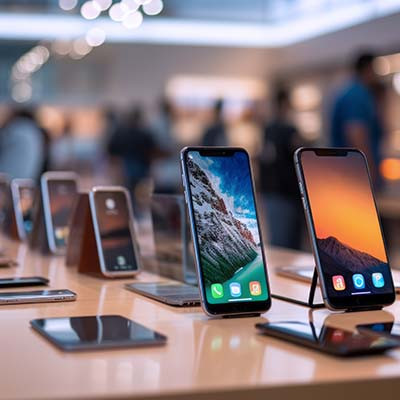EdgeTek Blog
Having your team connected through mobile, especially with access to collaboration and communication tools, is the new normal in business. Many organizations take advantage of the ubiquity of smartphones and either provide mobile devices to their staff or utilize the built-in options on many of today’s newest mobile OSs that allow them to put an encrypted work profile on; effectively adding mobility to your business without a huge capital investment. Regardless of what option you choose, you need to have management software in place if you are going to trust your employees to have access to company information outside of the office.
The smartphone market used to be a hallmark of innovation, but nowadays, aside from the folding form factor, smartphone manufacturers have decided that the technology works, more or less, the same. What does this decline in innovation mean for you and your business? It might actually not be all that bad.
Artificial intelligence (AI) is rapidly transforming the technology landscape, and mobile devices are at the forefront of this revolution. As smartphones and tablets become increasingly powerful and sophisticated, they are becoming ideal platforms for running AI applications. This trend is driven by several factors, including:
Now that smart mobile devices are a mainstay in business, the landscape will never be the same again. Your organization needs to have a plan to acquire, manage, maintain, and secure these devices. Businesses generally choose either Bring Your Own Device (BYOD) or Corporate-Owned, Personally Enabled (COPE), depending on their needs.
You might have noticed the mobile technology around you, like smartphones, tablets, and wearables, getting noticeably stronger in recent years. As their strength increases, so too does their power expenditure, demanding more effective batteries and charging technologies as a result. Today, we want to look at the ever-fascinating topic of batteries for mobile technology and how innovations can help to fuel change in device design.
Many individuals were skeptical about foldable phones when they were first introduced, all thanks to higher prices and stories about how fragile they are. That said, those who have stuck with the concept have contributed to the excitement and built it up to be a legitimate option that actually makes sense.
Autocorrect is one of those things that you either love or hate, depending on how many times it has saved you from embarrassment or been a source of embarrassment. Without appropriate context, it can sometimes struggle to offer you appropriate suggestions. Thankfully, you can make autocorrect work a bit better for you, and if you are just sick of it altogether, you can disable it.











